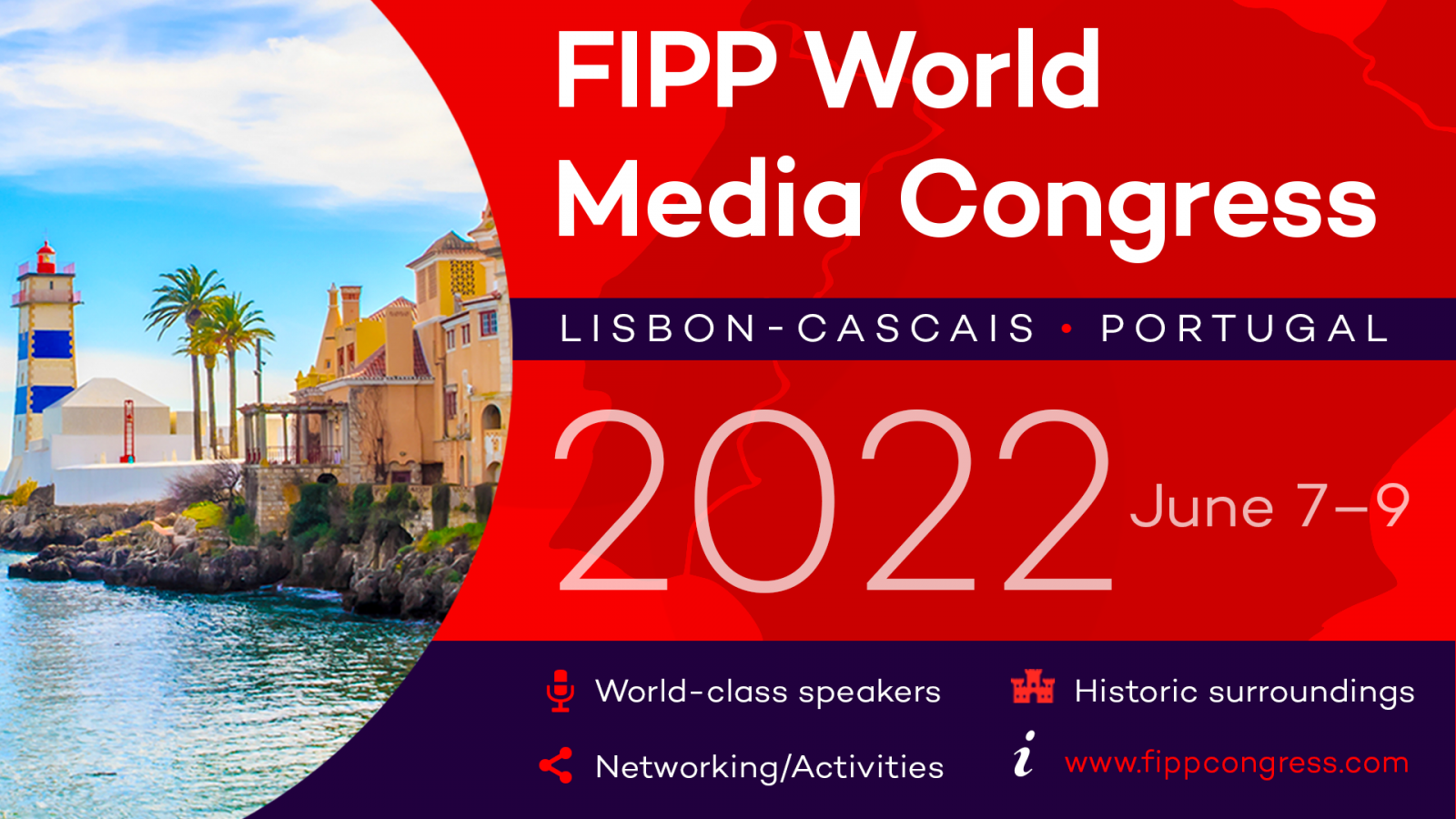Future Plc on data, marrying content with e-commerce, and the importance of diversifying revenue streams
With now less than a month to go before the 44th FIPP World Media Congress in June, we sat down with Elizabeth Deeming, Future Plc’s SVP of Group, to find out what the company is prioritising as we move out of the pandemic era.
The last twelve months have been busy ones for the company, which has had to manage the integration of the raft of brands acquired from Dennis Publishing in 2021, as well as other purchases such as the digital-only women’s lifestyle publisher WhoWhatWear and data insight platform Waive. All of this on top of maintaining a variegated collection of high-profile brands from Country Life to Wallpaper as well as delivering new launches and brand extensions.
Underpinning Future’s strategy is a commitment to diversification of revenue, and in this wide-ranging interview, Deeming talks to us about the importance of data, the marriage of content and e-commerce, and how technology is shaping the future of online safety.
Part of our: Meet the Speaker Series
Elizabeth will be speaking at the 44th FIPP World Media Congress in June, and you can find out more here.
You joined Future as SVP of Group in Autumn last year. Can you outline your career up until that point?
I’ve been in leadership positions in information and services companies for the past two decades. It’s always been my passion, the way that data and information connects, facilitates and empowers people and businesses to succeed. My career has spanned b2c as well as b2b – most recently I was Group Managing Director of Hyve plc where I ran the division which covered sectors from EdTech to Commodities to Ecommerce to FoodTech as well as overseeing product development and digital strategy on behalf of the group. A fascinating and busy brief.
Before that I was Chief Operating Officer for the private -equity backed information services company Stylus Media Group. I’ve worked at NewsCorp, Deutsche Bank and a management consultancy. I am American but have lived in London for some time and had the opportunity to run teams all across the world.
Joining Future last year has been hugely exciting: I have a dual remit, leading both our b2b division (which includes email newsletters, lead generation, and online products) and leading ecommerce across our b2c brands. There used to be a bigger difference between b2b and b2c but the world is evolving. The principle is the same: customers have specific needs and our products – whether information, data, or transaction opportunities – must serve those needs. At Future I’m in a place where the b2b and b2c are seen as vital opportunities for cross learning, and of fundamental importance to both is deep knowledge about our specific customer base.
What specifically attracted you to the role at Future?
A mentor once said to me ‘you know you’re in the right job when you wake up & want to run to work’. That’s the energy I feel. I can’t wait to get in and get started every day.
Also, diversification and specialisation do not always go in the same sentence when it comes to strategy, but in fact that is exactly what Future has done well – diversification of revenue lines (eCommerce, Advertising, Lead generation, Price comparison, Email newsletters) as well as a commitment to specialist content – knowing who our customers are and what they want.
It was both the scale and clarity of strategic approach that attracted me. Most people in the media industry in the US and UK have observed the rise of Future over the past few years. It is a privilege to be part of the executive team here and be surrounded by over 3,000 talented people across the globe. Whether I am seated that day in our Bath office looking at the Avon river, or looking at Bryant Park from our NYC office, each day is fundamentally about how best to serve our customers through content and information.
What were the key challenges you had to address when joining Future? For example, integrating the portfolio of titles you acquired from Dennis?
Taking a leadership role over transatlantic teams during covid, while you are not able to travel & meet people in person certainly was a unique challenge. At Future we have quite an established acquisition playbook, but for the Dennis Publishing acquisition, the additional twist was having a covid wave shortly after the deal closed. Needless to say, I was on a flight to the US the minute we were past the worst of Omicron to actually sit with and work closely with our colleagues there.
“The Future slogan has long been ‘Creators. Connectors. Experience Makers.’ Our USP is original content, expertly produced.”
How do you think Future’s ecommerce strategy will develop in the coming years?
The Future slogan has long been “Creators. Connectors. Experience Makers.” Our USP is original content, expertly produced. Content excellence is at the heart of Future, and Content-led commerce is the heart of Future’s ecommerce strategy.
I see lots of different routes emerging at the intersection of content & commerce – different content channels for younger generations; different content approaches for different products – and Future’s established digital brands and our underlying technology make us well-positioned to win.
In terms of monetisation of content, do you still see a major role for display advertising? Or are we now looking at businesses built on data collection, content commerce and lead generation?
Display advertising will continue to have a major role but alongside there will be an ever growing focus on expanding further monetisation streams. This will include the growth of data capabilities to provide audience targeting in a cookie-less world, and content commerce will continue to take centre stage as publishers understand the revenue that can be driven whilst adding value to the consumer purchase journey.
There are huge benefits for publishers in diversifying revenue streams and exploring alternative avenues. At Future, we created a Future Wheel – the wheel is made up of our different monetisation streams – from print, advertising, video production, to e-commerce. The wheel illustrates Future’s holistic approach to diversification. It also ensures that no one monetisation model is dominant and has led to a stronger business model as market changes in one area will have less of an impact as we have other monetisation streams to rely upon.
You have a background in events. Has Covid changed events and conferences forever? Do you think hybrid events are here to stay?
The impact of a pandemic on an organisation with events as part of its offer could have been devastating, but in the case of Future – and this predates me joining – they demonstrated an ability to pivot and took the events online. In 2020, over 98k people attended one of Future’s B2C or B2B events ‘virtually’ – 72% of FY 2019 attendance rate which was amazing. I believe in events. Customers want to make transactions or connections in forums they trust, and forums which bring together the best of their community. Those forums can be events or online brands.
Is there an emerging technology which will play a key role in shaping the future of content?
One of our core ESG pillars is for Future to be at the forefront of online trust & safety and I’m honoured to be leading some of our work in this area. There has been an emergence of accreditation bodies which provide 3rd party audits of content in terms of accuracy/credibility and of the standards of the content production processes. Several of our brands have volunteered to undergo these audits, which we are very proud of. They are long and complex processes…
So looking towards the future, I’m curious if a technology will emerge that will play a key role in these types of audits; a process to ensure trustworthy content, to go beyond self-policing to provide automated 3rd party auditing. It will be interesting to see what we create beyond the human-led mechanism of quality control for misinformation and trust. But who defines the parameters?
Finally do you think that companies like Substack, which offer an opportunity for journalists to become high profile b2b influencers outside of the mainstream publishing sphere, will impact on content business models in the future, especially b2b ones?
I’m always welcoming of new forums and new business models. People should read what they want, when they want it. Fast-moving companies will recognise this and expand into different models for different consumption patterns. This is why we have a model of a range of products for our customers.
From the employee perspective, Substack is understandably lucrative for a few very strongly-known journalists. Equally, a pre-established platform with a large audience and an ambitious corporate with cash to spend and an entrepreneurial spirit also remain excellent homes for journalists.
? To see the latest speaker line-up for this June’s FIPP World Media Congress, along with details on the agenda and more, click here.












